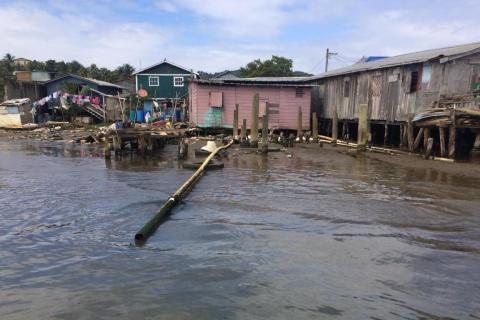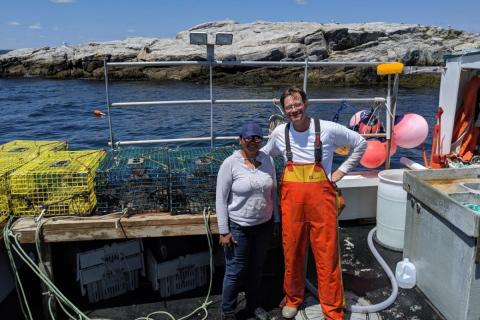Prerequisites
None.
Course Description
This course examines the tenets of Environmental Justice (EJ) with focus on coastal communities around the world. Students will receive an orientation to the history of EJ and define coastal communities, drawing upon global case studies. We will touch on traditional EJ concerns, including climate change, pollution, resource loss, and restricted access to information and representation. We'll discuss steps that are being taken to counter the emerging crises, drawing from solutions across the policy spectrum, from forced relocation to paying reparations. Students will learn the basic principles and history of EJ, be able to describe the issues faced by coastal residents, understand how climate change affects nearshore habitats and waterfront communities, and have investigated and presented a way forward to the rest of the class.
Students will be able to:
- Identify the most significant ecological threats to nearshore marine species and habitats and explain why they are significant in the context of Environmental Justice
- Articulate the systemic, historical forces that have led to social inequities along the coast
- Describe how sea level rise is calculated and projected into the future (where the measurements come from, how projections are calculated)
- Propose viable solutions to coastal Environmental Justice issues
What to expect from an online course at Shoals Marine Laboratory:
- Interactive, course-specific digital content
- Combination of synchronous and asynchronous virtual classrooms
- Access to long-term data sets from SML
- Concentrate on one course at a time
Status
Open
Course Numbers
Cornell: BIOSM 2025 (3 Credits)
UNH: MEFB 512 (4 Credits)

A community vulnerable to coastal climate change and increasing pollution in the Bay Islands, Honduras, 2019. Photo credit: H. W. Weiskel

A local, Gulf of Maine lobsterman working with an SML student on Appledore Island. Photo credit: SML
Faculty
Dr. Heidi Weiskel
Dr. Heidi Weiskel is a marine ecologist who spent her summers out at the Isles of Shoals off the coast of New England. She credits that experience for her lifelong dedication to marine ecology and coastal protection. She has a BA from Harvard University; an MS from Tufts University; and a PhD from the University of California, Davis, where she studied the effects of nutrient pollution on marine species. She did her postdoctoral work on oyster reef food webs at the University of Georgia. In addition to her field research, Heidi was the Director of Pollution Policy at the Pew Oceans Commission, which developed recommendations for the U.S. Congress and Administration to improve marine resource laws and regulations. She also worked at the U.S. Marine Mammal Commission on marine mammal protection policy, as an environmental research fellow at the Permanent Court of Arbitration in The Hague, and as a science editor at UNESCO in Paris.
She now serves as an Advisory Council Member of the Estuary & Ocean Science Center at San Francisco State University and a member of the International Union for the Conservation of Nature Marine Connectivity Working Group. Since 2012, she has served as Staff Scientist with the Environmental Law Alliance Worldwide, an international NGO that provides pro bono support for public interest environmental attorneys around the world working to protect the environment and local communities from harmful projects. At ELAW she founded and runs the Marine Working Group, which researches successful scientific and legal strategies for marine conservation around the world. ELAW has partners in 80 countries, and Heidi has traveled widely, serving as an expert witness for their court cases and collaborating with them on the ground.
